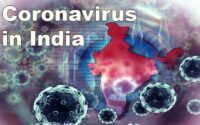IP WAIVER IN THE PANDEMIC: DEBATE ON HUMAN RIGHTS VS IPR
This article is written by Robin Kumar Thakur of Chanakya National University, Patna.
INTRODUCTION
Intellectual property stands for the work, inventions and discoveries arising out of one’s creativity. IPR i.e., the Intellectual Property rights are the legal rights arising out of an intellectual activity in any field. It came into its modern form with the ‘Trade related Aspects of Intellectual Property Rights Agreement’ popularly known as TRIPS came into existence in 1995. The main aim was to remove piracy and infringement of one’s intellectual property. But the TRIPS has been always labelled with an allegation of favouring the richer countries as they are only able to invest considerably in research and development whereas developing or underdeveloped countries cant. The request of India and South Africa to the WTO to suspend IP protections related to Covid- 19 vaccines has again brought this into the limelight.
Prominent health virtuosos argue that the only way to recover from the pandemic is fast tracked vaccination. So here the question arises whether these rights can be infringed for the betterment and safeguarding of the human race. Most of the vaccines except India’s Covaxin and China’s SinoVac had been developed by the much richer global north in whose hands these IP rights are vested. This monopoly is one of the reasons behind restricting the availability as well as affordability of the vaccines and is a grave violation of human rights. Restricting access to life-saving vaccines directly or indirectly infringes one’s right to life, which is one of the fundamental rights. Making a profit over human corpses is not only highly immoral but also a violation of basic human rights.
THE TWO SIDES OF IP WAIVER
The IP waiver has both positive and negative points. Most of the people who support the IP waiver argue that the pandemic is an extraordinary situation and all the resources which are of material in fighting in the pandemic must be paraded without any hindrances like the IP rights. Article IX.3 of the WTO agreement allows for the temporary waiver of IP rights under ‘exceptional circumstances. So the supporters of the waiver argue that since the pandemic is an exceptional circumstance, the IP rights must be waived.
Arguments supporting IPR waiver by the Pharma companies:
• Ramp up vaccine production: One of the main problems is the insufficiency of the corona virus vaccines in the market as only a limited number of players are manufacturing these life-saving vaccines. This can be removed if patent rights are removed as more and more companies will start manufacturing these vaccines.
• Equitable distribution of vaccines: Vaccine equity remains one of the biggest problems in this pandemic. With the richer nations stockpiling most of the vaccines for their citizens the middle- and lower-income nations are left with only the leftovers of the richer nations. If vaccine patent rights are removed these lower- and middle-income companies will also be able to manufacture these vaccines in their own countries.
• Early vaccination: Availability of the vaccines will ensure that the whole population gets vaccinated soon. As the corona virus continuously mutates there will always be a threat unless and until the whole population of the world gets vaccinated.
Arguments against Pharma companies lifting their IPR
• Reluctance in Pharma Companies to develop the medical science further: The waiver of patent rights may result in disheartening pharma companies to further develop medicines in the future. If they do not make any profit from their vaccines in which they had invested billions of dollars and unlimited hours, they will not pioneer in the research and development of further medicines.
• Risk Appetite of Pharma companies: The pharma companies have taken risk by investing millions of dollars in setting up research and development facilities as well as manufacturing facilities. In India, SII had stockpiled millions of doses of vaccine before even the vaccine was cleared for use in India. The question here arises that if the vaccines had failed, the companies had to suffer from the losses. So, if the vaccines become successful, the profit must go to the pockets of these risk-takers.
• Quality of the medicines/ vaccines: The pharma companies also fear that if the patents are revoked, companies with very little experience may start to produce vaccines in which they lack knowledge. This will not only be harmful to the people but will also result in loss of reputation of the company as in the pharma sector, it is the reputation that sells along with medicines.
IS AN IP WAIVER THE ONLY WAY?
TRIPS also provides for some alternate ways which allow unimpeded production of vaccines like:
Governments can use the Intellectual Property without obtaining the permission of the patent holder by paying the patent holder a remuneration for the intellectual property.
Other companies can voluntarily license the manufacturing of vaccines/drugs from the parent company as in the case of SII and AstraZeneca.
Compulsory licensing means that the government authorises a third party to manufacture and market drugs/vaccines without obtaining permission from the patent holder. It is granted only if:
The patent rights granted are 3 years old.
The invention patented is not available to the public at an affordable price.
The Requirement of the public with respect to the patented invention is not met.
These flexibilities provided under the TRIPS are useful in the long run, but in extraordinary circumstances like the Covid-19 pandemic, they are not practically viable. Compulsory licensing here cant be granted before 3 years of the patent rights. In this pandemic when the whole world is struggling and thousands of deaths every day, compulsory licensing can’t be of much help. Judicial trends from the past also emphasize on the fact that it is not easy to obtain a compulsory license as we had seen in the case of Lee Pharma vs Astrazeneca AB.
Voluntary licenses are also a good way to enhance the manufacturing capacity of the vaccine. But it is also time taking as setting up manufacturing units and transfer of technology takes much time.
IP waiver alone can not ensure vaccine equity, affordability and availability of vaccines. The International Federation of Pharmaceutical Manufacturers & Associations (IFPMA) pointed at some real challenges in the scaling of production and distribution of vaccines. The main challenges are scarcity of raw materials, trade barriers, supply chain bottlenecks. The equitable distribution is also hampered by the developed countries as they have already pre-booked most of the vaccines and are unwilling to share their vaccine doses with developing and underdeveloped countries. Scarcity and dependence on some specific suppliers of raw materials to manufacture vaccines also hamper the production capabilities. The production capability of one of the largest vaccine manufacturers of the world, Serum Institute of India was handicapped when the US blocked the export of critical raw materials used in the manufacturing of COVID-19 vaccines.
CONCLUSION
The reluctance of the pharma companies to waive their patent rights off the vaccine manufacturing has a terrible human cost. It infringes one of the most fundamental human rights i.e. the right to life. The pharma companies are enjoying a monopoly over the vaccine manufacturing and distribution and so they are equally responsible for the thousands of deaths that could be prohibited by equitable distribution and ip waivers by them. By and large, it can be said that the Pharma companies are making a profit over the corpses of those people who had succumbed to Covid-19.
IP waivers are the most important tool in the hands of the governments to ensure vaccine equity, availability and affordability. India enjoys a huge generic capacity and has ample production capability for manufacturing vaccines on its own if it is backed by patent waivers. Patent waivers will ensure more manufacturing by the already vastly experienced vaccine makers of India and would ensure the humongous population of India be vaccinated in no time.
REFERENCES
Saipriya Balasubramaniam India: IP Waiver For COVID Vaccines In India – Treading The Path Of Vaccination For All, mondaq, (08 June 2021), https://www.mondaq.com/india/patent/1076340/ip-waiver-for-covid-vaccines-in-india-treading-the-path-of-vaccination-for-all-
Steve Brachmann, EU Offers Alternative to COVID-19 IP Waiver That Supports Innovation and Addresses Supply Chain Problems, IPwatchdog, (8 June 2021), https://www.ipwatchdog.com/2021/06/08/eu-offers-alternative-covid-19-ip-waiver-supports-innovation-addresses-supply-chain-problems/id=134366/
Narayan Laksman , Explained | Can Intellectual Property Rights waiver resolve the COVID-19 vaccine shortage?, The Hindu, (9 May 2021), https://www.thehindu.com/news/international/explained-can-a-trade-related-aspects-of-intellectual-property-rights-trips-waiver-resolve-the-covid-19-vaccine-shortage/article34516626.ece
Edited by Shivanshika Samaddar of National Law University Delhi.


